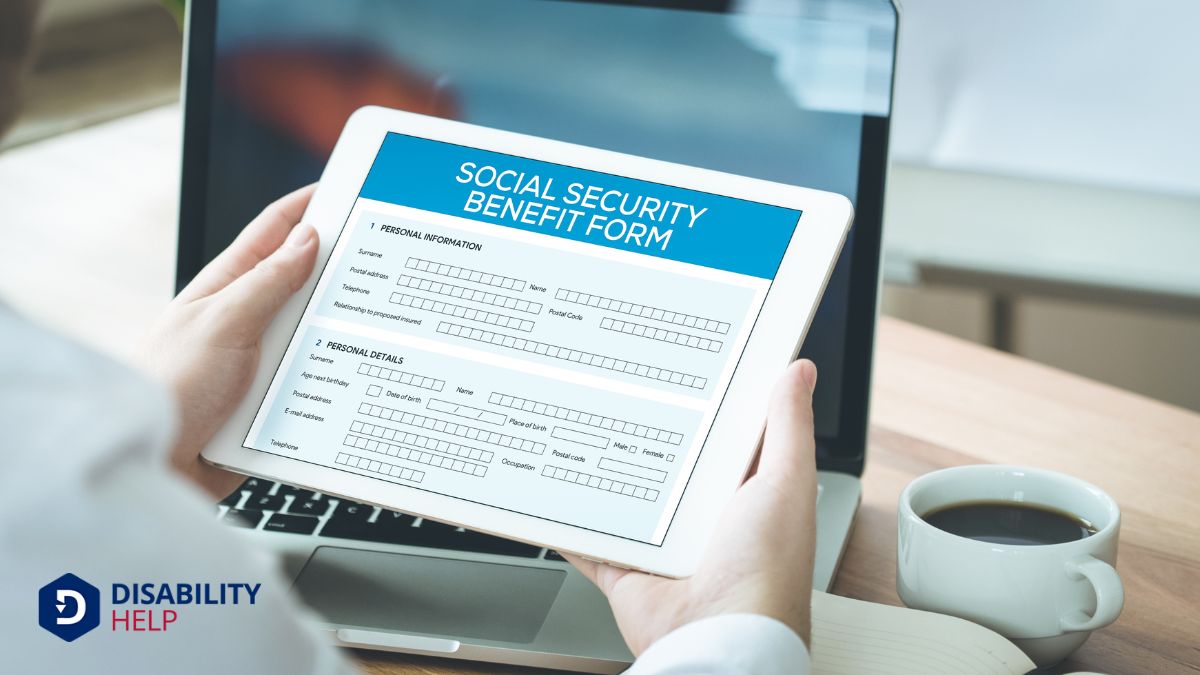When we receive that dreaded denial letter from Social Security, it can feel like a major setback. However, understanding why our claim was denied is the first step toward a successful appeal. Common reasons include insufficient medical evidence, earning too much, or not having enough work history. We might also be making the mistake of reapplying instead of appealing. Let's look closely at these factors and see how we can improve our chances of approval next time. Curious about how to gather the right medical evidence or what income limits might apply?
Key Takeaways
- Insufficient medical evidence was provided, and thorough documentation of the diagnosis and work limitations was lacking.
- Earnings exceeded the Substantial Gainful Activity threshold, suggesting the ability to engage in gainful employmentWork that provides a living wage and is within the capacity of an individual, including those with d....
- Inadequate employment history failed to meet the necessary work credit criteria for SSDI eligibility.
- Multiple applications were submitted without appealing previous denials, complicating the approval process.
- Limited documentation and outdated medical records weakened the validity of the disability claim.
What Is SSDI?

SSDI, or Social Security Disability InsuranceA form of insurance that provides income to individuals who are unable to work due to a disability., is a federal program that supports individuals who can't work due to a qualifying medical condition. Administered by the Social Security Administration (SSA), SSDI provides financial benefits to those whose disabilities limit basic work-related activities for at least 12 months. Importantly, SSDI doesn't cover partial or short-term disabilities; it focuses on long-term conditions that prevent substantial gainful activity.
To qualify for SSDI benefits, applicants must meet specific disability criteria set by the SSA. This involves presenting medical evidence that their medical condition severely hampers their ability to work. Additionally, applicants (or their spouse/parent) must have earned enough work credits by contributing to the Social Security system. The number of work credits required varies depending on the applicant's age and work history.
Once approved, the monthly payment amount is based on the individual's lifetime average earnings covered by Social Security. However, if the recipient is receiving other benefits, the SSDI payment may be reduced. Understanding these requirements is essential, particularly if you've faced a denied application. Ensuring that all necessary medical evidence and work history details are provided can help you qualify for benefits without unnecessary delays.
Common Reasons for Denial
Navigating the SSDI application process can be overwhelming, and understanding why applications are denied is necessary. Many of us face denial due to inadequate medical evidence or a lack of clear diagnosis. Without thorough documentation of our conditions, the Social Security Administration (SSA) may not see enough proof of our disability.
Another common reason for denial is when we're earning above the Substantial Gainful Activity (SGA) threshold, which in 2023 means exceeding $1,470 monthly. This can lead the SSA to conclude that we're not sufficiently impaired to qualify for benefits.
Additionally, an insufficient employment history can also result in denial, as the SSA requires a certain number of work credits to be eligible.
It's important to avoid reapplying without appealing previous denials. Multiple applications instead of appeals can lead to repeated denials, complicating our ability to eventually secure benefits. Limited documentation and inadequate medical evidence further contribute to the likelihood of denial. Understanding these common reasons for denial can help us better prepare our applications and avoid pitfalls, ensuring we have the best chance of receiving the benefits we need.
Insufficient Medical Evidence
Often, despite our best efforts, claims for Social Security Disability Insurance (SSDI)A U.S. government program that provides financial assistance to individuals who are unable to work d... are denied because of inadequate medical evidence. This means that the documentation provided doesn't sufficiently support the severity of our condition or clearly outline our limitations. If medical records lack a clear diagnosis or fail to demonstrate how our disability impacts our ability to work, our claims can be denied.
To strengthen our disability claim, it's essential to seek prompt medical care and discuss our work limitations with a physician. Thorough documentation is key. This includes detailed medical records, doctors' notes, and relevant employer records that highlight how our condition affects our job performance. These records should paint a complete picture of our health and work limitations.
Inadequate medical evidence is a common reason for denied benefits. Hence, ensuring that our medical files are thorough and up-to-date can make all the difference. By providing a robust and detailed account of our condition through comprehensive documentation, we can improve our chances of SSDI approval.
Let's remember, it's about compiling all necessary information to leave no room for doubt in our disability claim.
Multiple Applications

While insufficient medical evidence is a common hurdle, another pitfall to avoid is the submission of multiple applications. Submitting multiple applications instead of appealing previous denials can hinder your progress. When we repeatedly apply without pursuing the appeal process, we often face further denials, creating a frustrating cycle.
The appeal process is structured to give us a fair chance to present our case. It involves several levels, starting with reconsideration and potentially progressing to Administrative Law Judge (ALJ) hearings. During ALJ hearings, we have the opportunity to testify about our disabilities and work limitations, which can be vital for a favorable outcome.
Seeking assistance from a special needsA term used to describe individuals who require additional support due to physical, learning, or emo... planning attorney can make a significant difference. These professionals can help us navigate the appeal process effectively, ensuring that we present the strongest case possible. They understand the intricacies of the system and can provide guidance on how to proceed at each stage.
Earning Too Much
One major reason for Social Security Disability Insurance (SSDI) claim denial is earning too much. If our monthly earnings surpass the Substantial Gainful Activity (SGA) limit of $1,470 (as of 2023), we may face SSDI benefits rejection. The Social Security Administration (SSA) utilizes this income threshold to determine if we can engage in gainful activity despite our disability.
When monthly earnings go beyond the SGA limit, it indicates we've work capacity and can generate significant income. This work disqualifies us from receiving SSDI benefits because it signifies our ability to support ourselves through employment. Here are three key points to keep in mind:
- SGA Limit: Monthly earnings exceeding $1,470 (2023) can result in SSDI denial.
- Income Threshold: Surpassing this limit suggests we can engage in gainful activity.
- Work Capacity: Demonstrating significant income indicates we don't meet SSDI eligibility criteria.
Understanding these factors is vital. If we surpass the income limit, our claim could be denied, as income disqualifies us from proving the severity of our disability.
Staying within the SGA limit guarantees we meet the necessary criteria for SSDI benefits.
Conclusion
To wrap up, understanding why Social Security claims often get denied helps us navigate the process more effectively. By ensuring we have adequate medical evidence, avoiding multiple applications without appealing, and keeping our earnings below the Substantial Gainful Activity threshold, we can greatly enhance our chances of approval. Let's stay proactive, seek prompt medical care, and maintain thorough documentation to pave the way for a successful SSDI claim.






